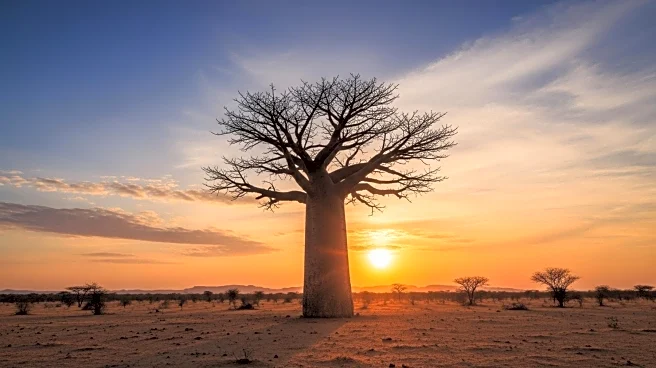What's Happening?
Madagascar's President Andry Rajoelina has dissolved the government following widespread protests led by young people over persistent water and power shortages. The protests, dubbed 'Gen Z' protests, have seen thousands take to the streets demanding better living conditions. The UN has condemned the use of force by security forces, which reportedly resulted in 22 deaths and over 100 injuries. The government has disputed these figures. Rajoelina has acknowledged the government's failures and announced the dismissal of the prime minister and cabinet, with plans to form a new government soon.
Why It's Important?
The protests represent a significant challenge to Rajoelina's leadership, highlighting the growing discontent among Madagascar's youth over basic service failures. The government's response and the international community's reaction could influence Madagascar's political stability and future governance. The situation underscores the broader issues of governance and infrastructure development in the region, with potential implications for international aid and investment.
What's Next?
Rajoelina's government will act in an interim capacity until a new cabinet is formed. The president has expressed a desire to engage with the youth, which could lead to policy changes or reforms. The international community, particularly human rights organizations, will likely continue to monitor the situation closely. The outcome of these developments could affect Madagascar's international relations and its ability to attract foreign investment.










